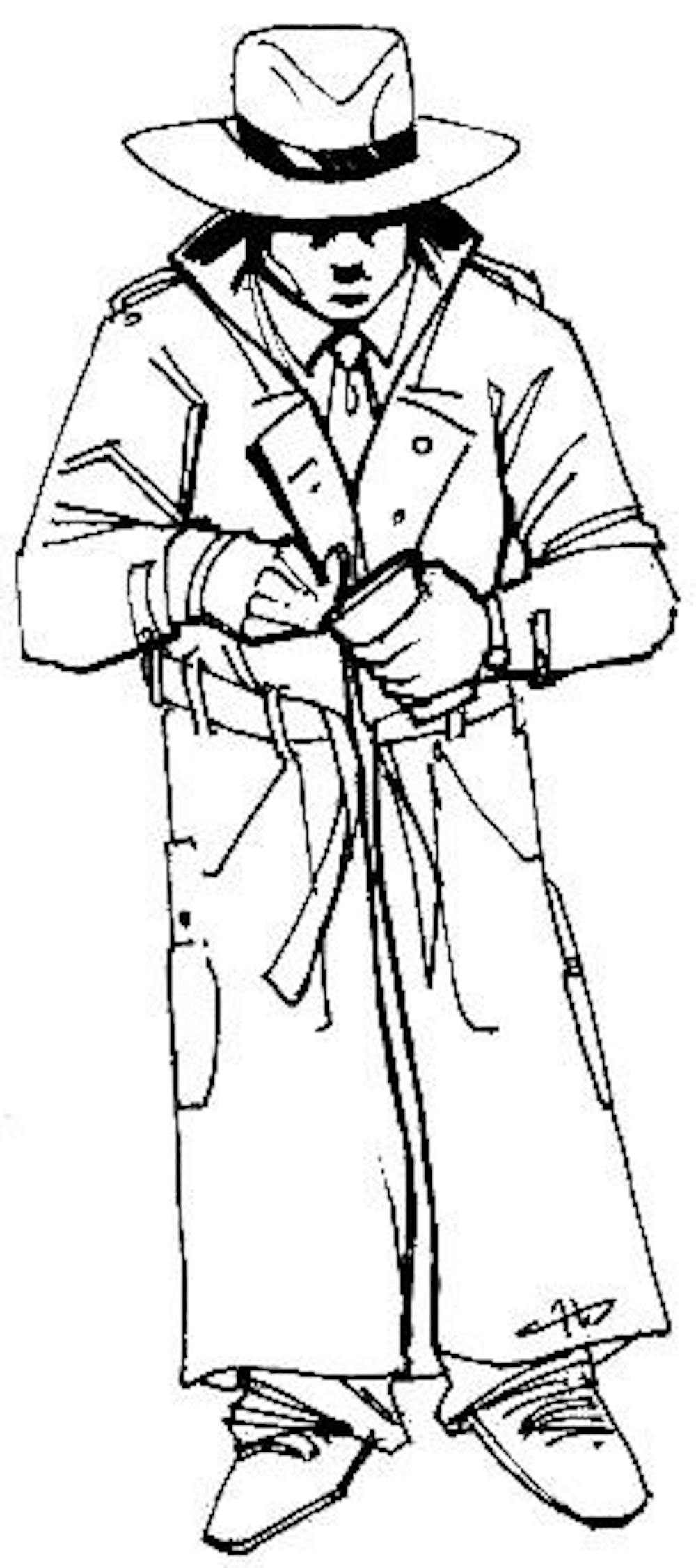
(Dan Chudzinski)
Journalists have had quite the journey. They were portrayed as heroes during the days of Watergate, serving the vital interests of the public to now being viewed with suspicion and disdain after a number of recent scandals. From Jayson Blair to most recently the revelation of Valerie Plame as a CIA spy and the resulting trial and subpoenaing of journalists, many important questions of journalistic responsibility and privilege have been brought into the spotlight. Lowell Bergman is examining these very issues in a four-part Frontline series, the first of which aired Feb. 13. One of the central questions of modern journalism is whether journalists should be protected from testifying in court if doing so would divulge confidential sources.
Journalists have long argued for a federal shield law, a protection from federal pressure to reveal the names of sources whow leaked classified information. As the episode of Frontline points out, while no federal law exists, 49 states recognize some state level protection for journalists from prosecution. This was a result of how some journalists interpreted the landmark Supreme Court case of Branzburg v. Hayes. In a 5-4 decision, the court determined that there is no First Amendment protection from subpoena in court. But, in the majority opinion, Justice Lewis Powell argued that while in the specific context of Branzburg there was no protection for journalists, he was not convinced that this was true in all instances. The alternate Powell interpretation was essentially rejected when a district appeals court ruled that two reporters, Judith Miller and Matthew Cooper, had no protection from revealing their sources in accordance with a subpoena, reaffirming Branzburg.
Miller and Cooper eventually revealed their sources, leading to the trial of I. Lewis "Scooter" Libby for obstruction of justice and perjury in connection with the Plame affair. Numerous journalists have testified in the trial and many questions are being raised over how journalists perform their job. It is important to determine the role of confidential sources in reporting and whether journalists should be given an absolute shield from having to reveal confidential sources.
Unfortunately, the answer to this question is not a clear-cut yes or no, but a sometimes. In some instances, it is important to protect journalists and their sources when such sources are blowing the whistle on illegal governmental behavior. An example of this is the Watergate scandal. Confidentiality was a tool used to coax Mark W. Felt to reveal and confirm certain information to Bob Woodward. Also in this instance, there was no risk to national security by receiving this information and printing it. However, in the example of Cooper and Miller knowing who leaked the name of a CIA agent, reporters have the same responsibility as regular citizens to testify in court as to who breached national security. Essentially it is a question of what is in the best interest of the U.S. public. Some would argue that this means a federal shield law could easily be crafted and that lawmakers should just include an exception that it doesn't apply in instances of national security or life or death. Therefore the public interests in keeping government honest and maintaining national security can be preserved. But, such a shield law is not in the public's interest with the current state of journalism.
Confidentiality began as an option of last resort to convince sources to divulge sensitive yet important information for publishing. Unfortunately, confidentiality is now an accepted norm, with anonymous sources frequently contributing to stories. As the Libby trial has shown, anonymous sources who leak information may do so not with the interest of whistle-blowing in mind but with political partisanship and strategies in mind. There is no way of knowing the hidden agendas of anonymous sources, let alone if the information that they are leaking is even valid. It is not in the public's interest to receive information that cannot be confirmed as factual or which can rarely be attributed to a source. Until journalists hold themselves to a higher standard of reporting they should not expect the government to promise them protection from prosecution when journalists receive illegally leaked information.
Additionally, the shift to mass corporate media conglomerates is radically changing news coverage and competition. With the 24-hour news cycle, each news outlet tries to beat each other to the scoop. This has caused quick, often incorrect decisions, like Dan Rather's false story of President Bush not reporting for duty in the Air Force Reserve. Reporters who receive anonymous tips from administration officials are reluctant not to cover the stories because journalists don't want to alienate their contacts or pass by a possible scoop. The mass media model is focusing on profit margins and reporter prestige, rather than good journalism that is helpful for the American public.
There are exceptions to the problem, with papers such as The New York Times, Wall Street Journal and Washington Post, public broadcasting over PBS and NPR, and cable news and current affairs coverage through C-SPAN. These news outlets all provide superlative coverage for the public. It is not in the public interest to create a shield law and encourage the continued proliferation of anonymous sources. First, reporters will have to take a step to limit anonymous sources to be used only in situations where it is absolutely necessary.




